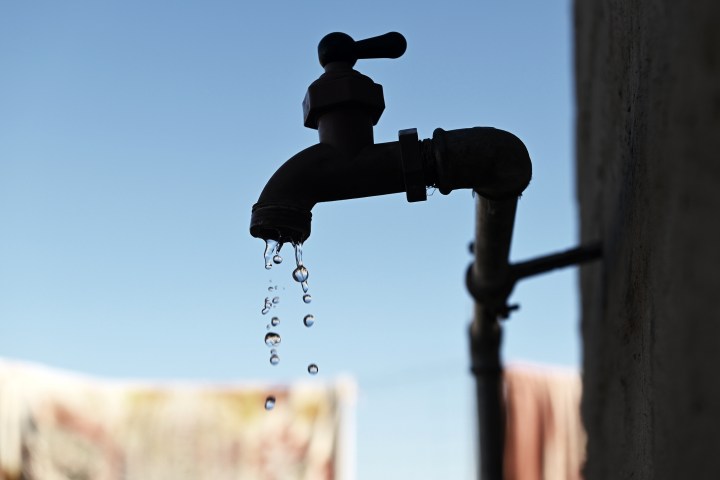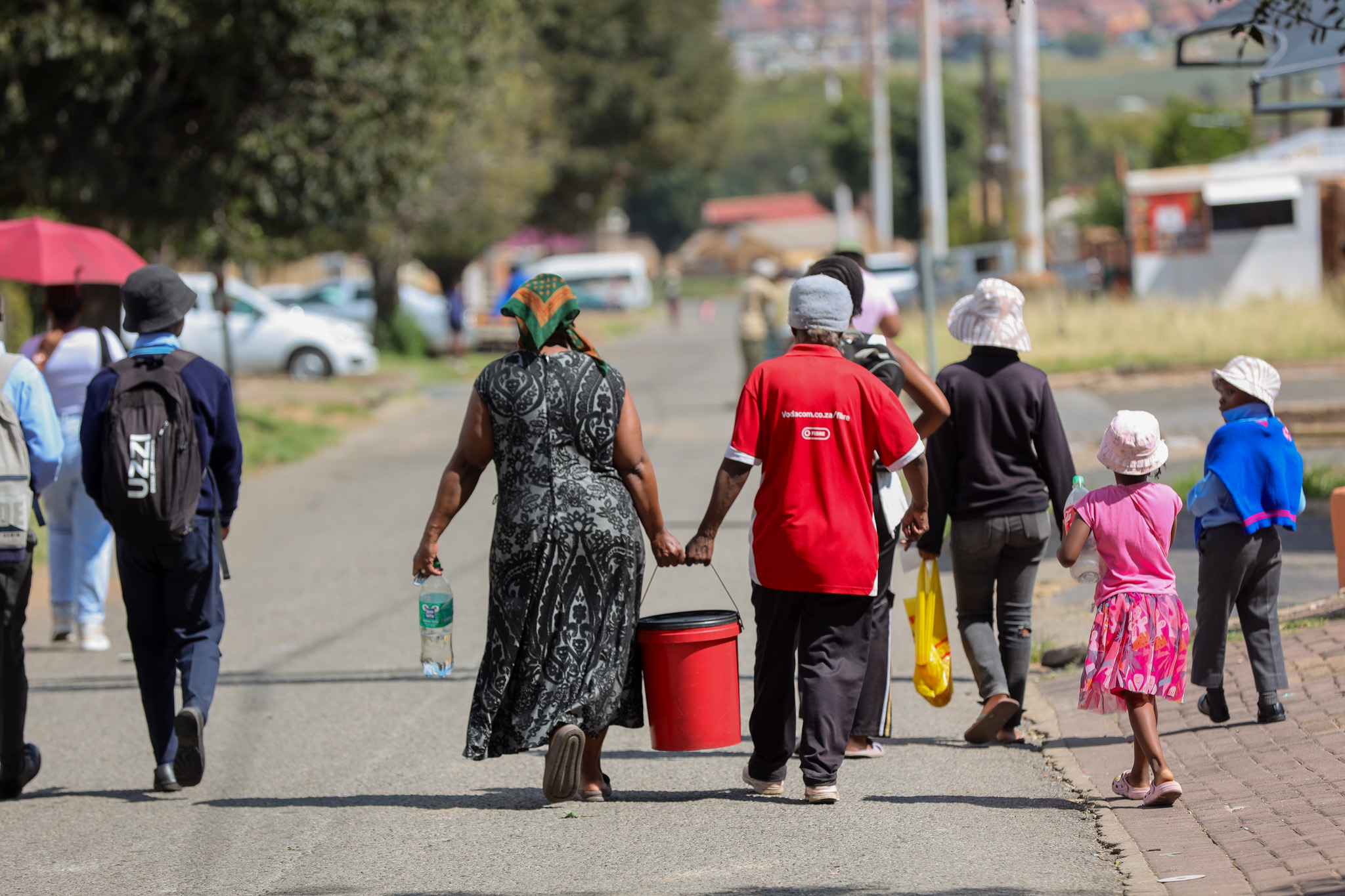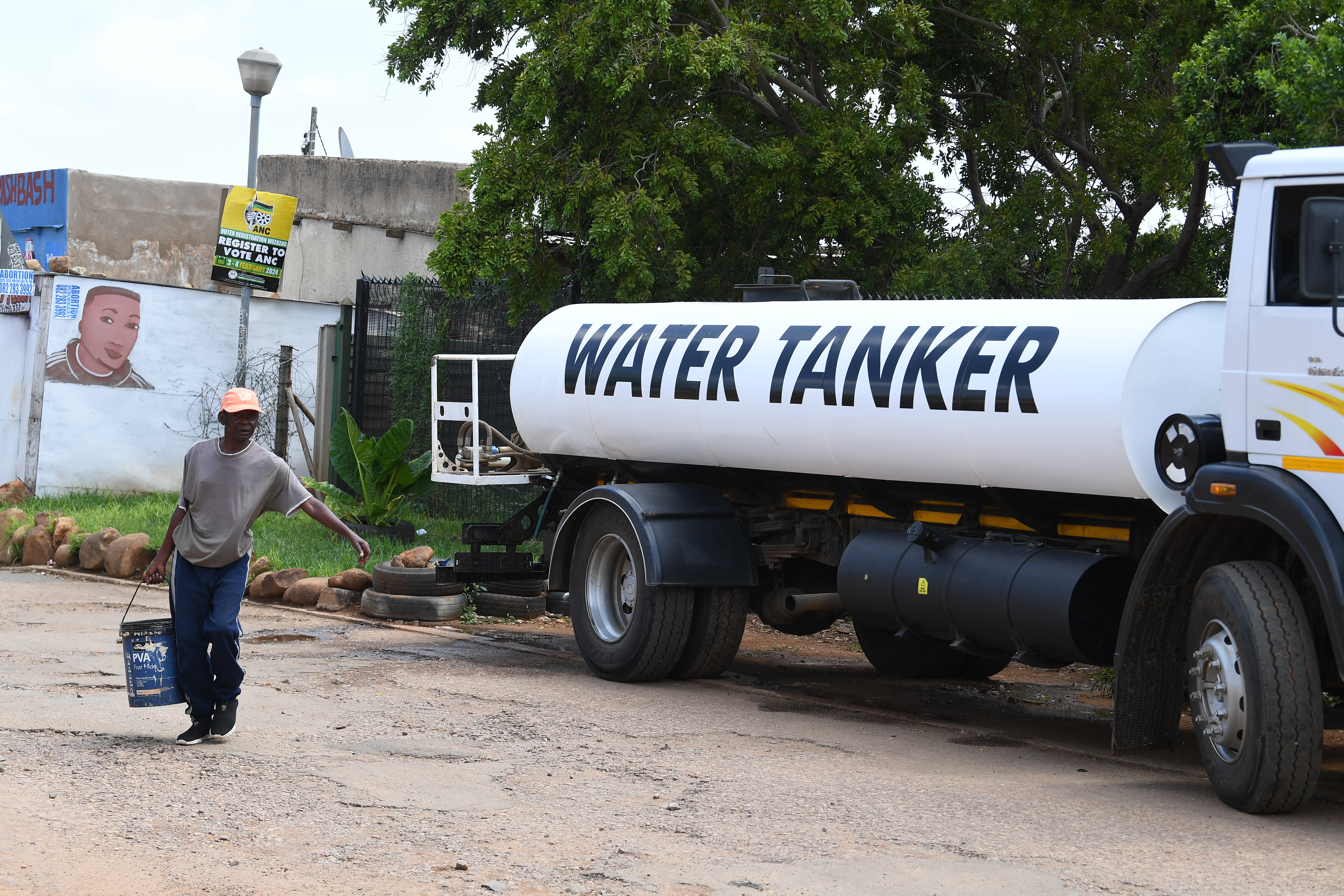THE CONVERSATION
Is my water safe to drink? Expert advice for residents of South African cities

Water can make you ill for two reasons: it can contain toxic chemicals or pathogenic organisms.
In early March 2024 the residents of Johannesburg, South Africa’s largest city and the economic capital of the country, were hit by extended cuts in water supplies. This was a new low after months of continuous deterioration. Professor in the School of Geography, Archaeology and Environmental Studies at the University of the Witwatersrand Craig Sheridan sets out the risks this poses to drinking water in the city.
What can get into my water that will make me sick?
Two things.
You can have chemicals in the water that are toxic, or you can have pathogenic organisms which can make you ill. These lead to different diseases and have different treatment strategies.
As a general rule, South Africa’s water works are able to remove almost all chemicals such that the water is safe to drink. The water treatment works also disinfect the water, killing harmful bacteria and viruses. This is primarily done with chlorine, but the water is overdosed slightly. This leaves a little chlorine in the water for “residual” disinfection. The residual chlorine travels with the water down the pipe to the reservoir and into your home, keeping the water pathogen free. Pathogens include viruses, bacteria and small animals such as worms and larvae.
This is why the water from taps sometimes smells a little like chlorine. This is a good thing. It means your water is safe.

Residents of Dube and Meadowlands fetching water in on March 15, 2024 in Soweto, South Africa. It is reported that the water crisis is due to faults and power outages at several pumping stations, and has affected several areas in the south of Joburg and in others such as Bryanston and Kensington. (Photo by Gallo Images/Fani Mahuntsi)
Is my tap water safe to drink?
As a rule, the answer here is yes, but probably only if you live in a big city. If there is a continuous supply of water, the pressure in the pipe prevents contaminants from entering the pipeline. And if the water has residual chlorine in it, that means the supply to your home is good.
Unfortunately, this relies on drinking water treatment works functioning properly, which is not always the case. The department of water and sanitation runs an auditing process of the water treatment works and the water they supply. The results are released as Blue Drop reports. Johannesburg has been classified as having excellent quality of supply, both chemically and microbiologically. However, the overall scores in Gauteng, the province Johannesburg is located in, are dropping even though they are still high.
Across the country 46% of drinking water is classified as “unacceptable” and scores of towns and cities have substantially declined in the last decade. The latest Blue Drop report shows a decreasing quality of drinking water supply across South Africa.
My water supply has been interrupted a lot. Is my tap water safe to drink?
Unfortunately, the answer to this question may not be yes, depending on a range of factors.
If there is no water in the pipe, and there is an underground sewage leak near the water pipe, or contaminated storm water near the pipe, there’s a real possibility that contaminated water can enter the pipe. Or, if maintenance work is done on a pipeline, as happens after any major leak, there is no real way to prevent soil and external untreated water entering the pipeline.
As water supply returns, this “first flush” down the pipe has the potential to contain contaminants. Because there is no way to know what it looks like underground around the pipe, it is sensible to protect yourself as water returns. You can protect yourself by flushing your taps until the water is fully clear. I would recommend that you wait until after the air has finished exiting the pipe and give it another minute or so, or until fully clear. Collect this water in a bucket for watering plants or flushing toilets. Once the water is clear, your quality should be similar to the bulk supply.
If you are worried, boil the water before use.
If your water remains brown or discoloured, report it and drink purified water.
I get my water from a mobile water tanker. Is this safe to drink?
Here the answer is supposed to be yes. But there are far too many instances of unscrupulous, roaming water tanker suppliers selling water, especially in areas with no access to safe tap water.
Since water supplies have become less dependable, the state has turned to businesses to supply water to communities. This has developed into a big business, as is clear from the size of one of Johannesburg’s tenders for vacuum trucks (honeysuckers) and water tankers. As a result, fraud and collusion are on the rise.
Unfortunately having no access to piped tap water is the daily reality more than 4 million South Africans. If this is the case, it is sensible to purify the water.

Elvis Nkuna carry buckets with water from a community water tank in Mamelodi on February 07, 2024 in Pretoria, South Africa. (Photo by Gallo Images/Lefty Shivambu)
What are the diseases that make drinking water unsafe? How are they spread?
There are a number of water-borne diseases that can cause very serious illness and death.
When water is sent to a laboratory for testing, the first test is for an organism called Escherichia coli, or E. coli.
E. coli is found in the lower intestine of warm-blooded animals. It does not necessarily cause disease. But if it is found in the water, there is absolute certainty that the water has been contaminated with faecal matter which has not been properly treated. This is why it is used as a screening tool for more serious diseases which are also spread through faecal matter.
Not all water that has E. coli will have pathogens. But the presence of E. coli is a serious warning that there is a high chance of other pathogenic organisms in the water such as cholera.
Cholera is caused by a bacterium found in the faecal matter of sick people. It is highly contagious and can spread by contact mainly from drinking contaminated water, food or from unwashed hands. The symptoms of cholera are watery diarrhoea (runny tummy), vomiting and leg cramps.
If I store water in bottles, how long before it’s unsafe to drink?
This is a really tricky question to answer. There are too many factors that can cause your water quality to deteriorate. For example, is the cap of the bottle open? How warm is the water? Is the container very clean or just rinsed? Water safety cannot be fully assured without analysing the actual water.
At the Centre of Water Research and Development we are doing research partly funded through the Water Research Commission to develop test strips to give a rapid analysis of drinking water quality that can easily be understood by the general public.
But I’d recommend that you try not to keep water too long. Preferably not more than a day. And if you do, then boil or purify the water before drinking it.
Is purifying water difficult?
At the University of the Witwatersrand we commissioned a short animation in all of South Africa’s 11 official languages as well as French and Portuguese on how to prevent cholera transmission and how to purify your water to ensure you stay safe.
We have also shared guidance on how to purify your water to make it safe. DM
This story was first published in The Conversation. Craig Sheridan is a Professor at the University of the Witwatersrand.




















I once had a friend who had been raised in the North-East of England who would delight, whenever he visited England, in saying he would oly drink bottled water because the tap water in England did not meet the standards he had become accustomed to in SA. How times have changed, courtesy of 30 years of the ANC.
A picture is worth a thousand words: photo is of a water-tanker in the foreground and a “register to vote ANC” poster in the background.
I would not trust any ‘safe water’ reports of notifications while the ANC is the ruling party. They lie continuously about everything and their cabinet ministers enter into shady back street business liaisons with suspect suppliers who return the favours with brown envelopes.